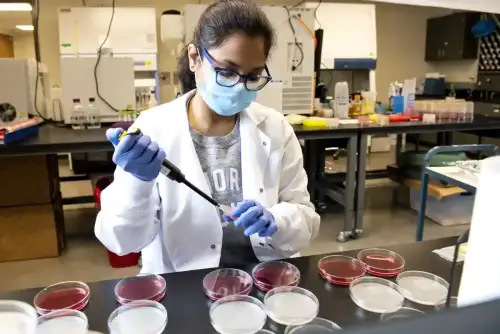Celiac.com 09/23/2024 - Gluten is a protein complex found in grains such as wheat, barley, and rye, and it poses health risks to individuals with conditions like celiac disease, dermatitis herpetiformis, and non-celiac gluten sensitivity. Accurate gluten detection is crucial for protecting these individuals, as even trace amounts can cause adverse reactions. To ensure food products are safe and appropriately labeled as gluten-free, manufacturers rely on gluten detection methods, primarily enzyme-linked immunosorbent assays (ELISAs). This study compares the performance of four commercial sandwich ELISA kits in quantifying gluten content in various food products, focusing on their accuracy around the critical 20 parts per million (ppm) threshold.
Overview of the ELISA Kits Tested
The study examined four commercial sandwich ELISA kits: the R-Biopharm AG R5 RIDASCREEN®, Neogen Veratox® R5, Romer Labs AgraQuant® G12, and Morinaga Wheat kits. Each kit has unique characteristics in terms of the antibodies used, the extraction processes, and the interpretation of results. The R5 kits (R-Biopharm AG and Neogen) use an antibody that targets a specific gluten peptide found in wheat, rye, and barley. The G12 kit from Romer Labs is based on an antibody that recognizes a different gluten peptide, while the Morinaga kit measures wheat protein rather than gluten directly. These differences can lead to variations in the results, which is a key focus of this study.
Methodology and Food Samples
Celiac.com Sponsor (A12):
Results of Gluten Detection Across ELISA Kits
The R5 kits (R-Biopharm AG and Neogen) generally produced similar results, as expected given their use of the same antibody. However, discrepancies arose with the G12 and Morinaga kits for certain samples. For instance, the Morinaga kit reported significantly lower gluten levels in grass-based products like organic alfalfa grass juice powder and organic Kamut grass juice powder compared to the other kits. These variations could stem from differences in the antibodies used, the extraction efficiency, or the specific gluten peptides present in these products.
In some cases, the kits produced divergent results even within the same sample set, highlighting the challenges of achieving consistent gluten detection. For example, the organic creamy buckwheat powder sample showed wide-ranging gluten levels across the four kits, which may be due to subsampling differences or the inherent variability in the gluten content of the sample. These findings suggest that while the kits are generally reliable, there are instances where their results differ significantly, potentially affecting the gluten-free labeling of products.
Implications for the Food Industry and Regulatory Compliance
The study's findings underscore the need for caution when relying on a single ELISA kit for gluten detection, especially when approaching the 20 ppm threshold. Given the variability in results, food manufacturers may need to set target gluten levels well below 20 ppm to ensure their products meet regulatory standards and are safe for consumers with celiac disease. Additionally, the potential for subsampling differences and the diversity of food matrices tested suggest that manufacturers should consider testing multiple samples and using more than one ELISA kit to confirm gluten-free status.
Conclusion: Significance for Individuals with Celiac Disease
For individuals with celiac disease, accurate gluten detection is critical to avoid exposure and manage their condition effectively. This study highlights the complexities of gluten detection in various food matrices and the limitations of current ELISA methods. While the ELISA kits tested are generally effective, the variability in their results suggests that food manufacturers must take a conservative approach to gluten-free labeling. By understanding the strengths and limitations of different ELISA kits, manufacturers can better protect sensitive consumers and ensure that gluten-free products truly meet the required standards.
Read more at mdpi.com

















Recommended Comments
There are no comments to display.
Create an account or sign in to comment
You need to be a member in order to leave a comment
Create an account
Sign up for a new account in our community. It's easy!
Register a new accountSign in
Already have an account? Sign in here.
Sign In Now